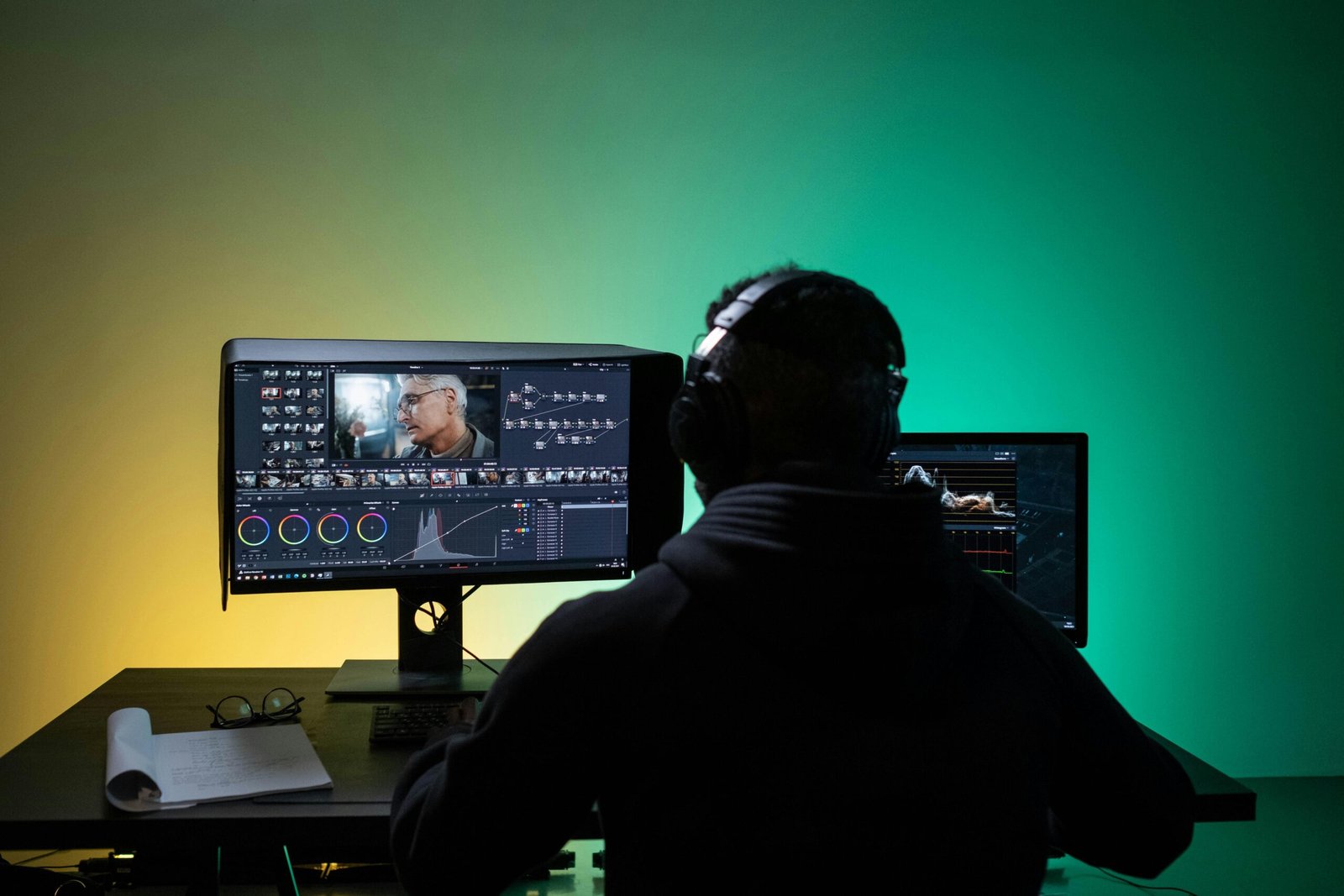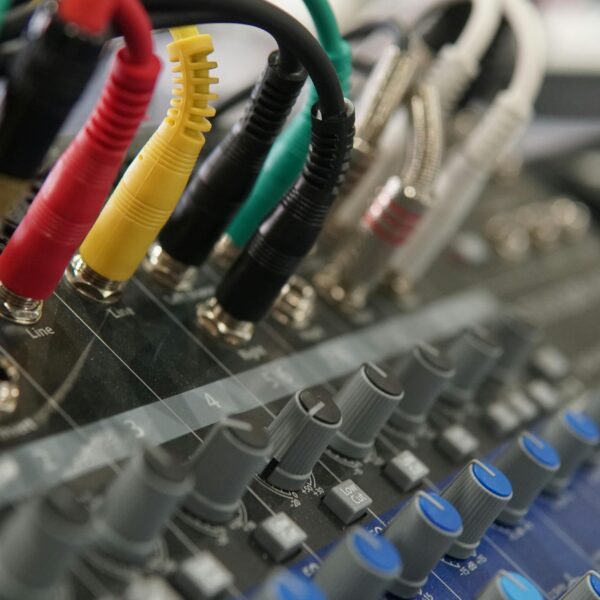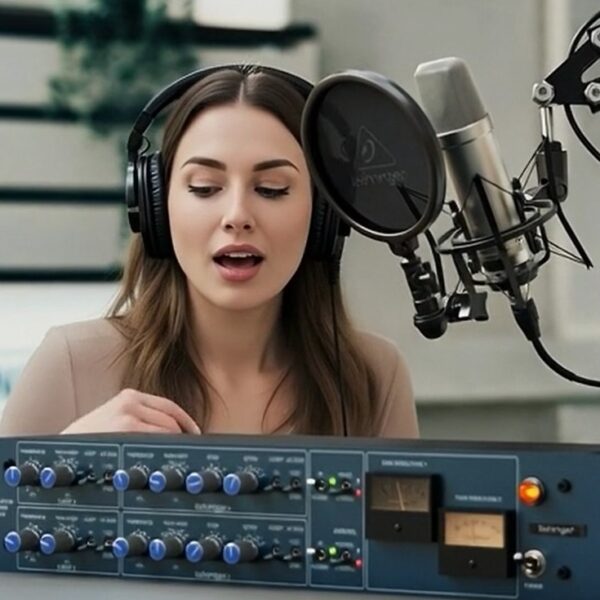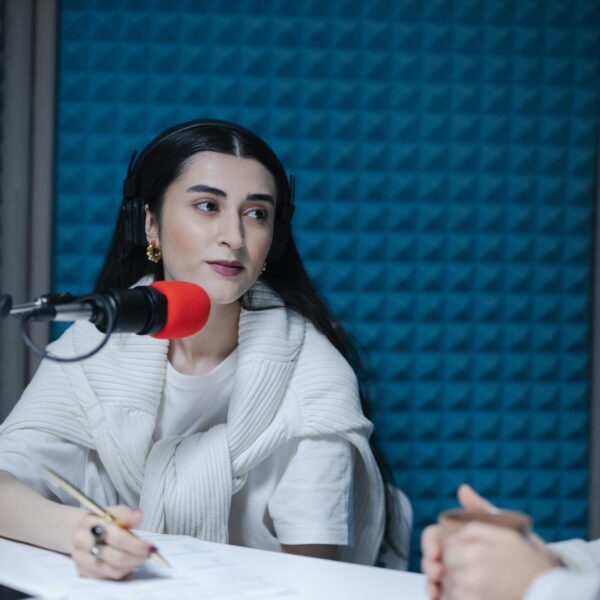If you are reading this, you’re on the brink of launching your podcast. And tensed about the Podcast Length.
You’ve put in the hours of preparation, fine-tuning your content, and now ready to hit record.
But wait,
have you considered how long each episode should be? What should be the average podcast length?
In one sentence: The best length of your podcast should be exactly how long it needs to be for the value that you want to give, just provide value, and that’s the biggest thing you should worry about.
Now if you want a detailed answer, let’s talk about the intricacies of determining the ideal length for your podcast episodes.

the Attention Economy
Attention is the most precious currency.
With distractions everywhere—notifications buzzing, social feeds updating, and work emails piling up—grabbing and holding your audience’s attention is tougher than ever.
Now, imagine your listener:
they’re on their morning commute, juggling a hot cup of coffee, dodging traffic, and scrolling through an endless list of podcast subscriptions.
In this chaotic routine, what guarantees that your podcast stands out?
Some argue that podcast episode length should match average commute duration—around 26.4 minutes in the U.S. (per the Census Bureau).
Others compare it to short tasks, like brushing teeth. But honestly? Neither really matters.
Podcast listening is fragmented.
You might catch five minutes while frying eggs, another 15 minutes on the way to work, and finish the rest on your evening drive—or even days later.
I’ve never felt the pressure to finish an episode in one sitting, and most listeners don’t either.
The ability to pause and resume on demand makes podcasts different from traditional radio or even YouTube videos.
Plus, with seamless device syncing, listeners jump between platforms—starting on smart speakers at home, switching to car Bluetooth, and finishing on earbuds at the gym.
This fluid experience means there’s no urgency to match commute lengths.
If content is valuable, engaging, and easy to resume, listeners will stick with it—whether it’s a 10-minute daily update or a 3-hour deep dive.
Instead of stressing about episode length, focus on content that hooks listeners instantly.
That’s what makes them come back—not whether it fits neatly into a commute. 🚀
What does the Statistics say?
If you take the average of the preceding five episodes of Acast’s top 100 podcasts, based on weekly downloads in the last 90 days, the average length of a podcast is 38 minutes and 10 seconds (or was on November 1).
This top 100 list includes 13 comedy podcasts with an average length of 55 minutes and 33 seconds, while the 22 news and politics shows average 28 minutes and 1 second.
That’s a significant difference.
Also, The average podcast duration in 2022 was 38 minutes and 42 seconds. It may increase or decrease in the future.
However, the likelihood that the average length will be shorter is greater.
The majority of podcast listeners are Generation Z and millennials, who are known for their short attention spans.
The Limitations of Data
The difficulty with statistics like this is that a comedy podcast could be a sketch show or a bizarre monologue, but a news and politics podcast could be an investigative documentary or a daily briefing.
Furthermore, because of the volume of content produced, a daily show is more likely to rank in the top 100 than a weekly podcast.
While these statistics confirm some assumptions—that comedy podcasts are generally longform conversations while news and politics are typically shorter—there isn’t much to learn from this data.
It’s certainly not anything to build an entire episode over.
Who Is Your Audience?
Audience demographics refer to the unique characteristics of podcast listeners—things like age, gender, cultural background, group affiliations, and education level.
But here’s the catch: knowing your audience isn’t just about defining them—it’s about understanding their habits, preferences, and even their daily routines. 🎧
A podcast aimed at busy professionals, for example, might thrive with short, information-packed episodes (think 10-15 minutes, perfect for a coffee break ☕), while a true crime podcast could hold listeners’ attention for over an hour, as long as it’s gripping enough.
Having a niche podcast naturally means attracting a niche audience—which can be a double-edged sword.
On one hand, a highly specific audience often translates into higher engagement and loyalty.
On the other hand,
it can limit your growth potential. If you’re tackling a broad topic, you have the flexibility to experiment with different episode lengths and test what works best.
But with a niche audience, you need to think about their lifestyle. Are they students cramming between classes?
Night owls winding down with a podcast?
The more you tailor your content to their habits, the stronger your connection with them.
Research backs this up: Edison Research’s Infinite Dial Report (2023) found that 50% of U.S. podcast listeners prefer episodes under 30 minutes, while only 14% regularly listen to episodes over an hour. 📊
If your target audience is millennials or Gen Z, shorter, digestible content might work better.
But if you’re targeting enthusiasts in deep-dive topics (like history or philosophy), long-form episodes could be your golden ticket. Balancing engagement with convenience is key.

To appeal to busy individuals, such as senior C-suite executives, consider a podcast duration of 20 minutes or less.
On the other side, your podcast topic could appeal to long-term listeners, such as taxi drivers or graphic artists who work from home. In this situation, an hour or more might be a better length.
The majority of your podcast decisions, including podcast duration, should always be made with your audience in mind.
Consider your likely audience’s demographics, including personal preferences, lifestyle choices, and so on. Use these findings to determine the length of your podcast.
The Rule of Thumb: 20-40 Minutes
After seeing podcasters doing years of trial and error, I’ve discovered that the optimal length for most podcasts falls within the 20 to 40-minute range.
Why?
Because it strikes the perfect balance.
Bottom line:
if your episode offers a solid 20 minutes of strong content that lives up to its title and helps your audience, 20 minutes is the ideal podcast episode duration.
Why extend it to an hour or reduce it to 15 minutes? That is simply creating artificial hurdles in your effort to create the highest quality material possible. The Daily, a news podcast with over 5 million listeners, runs for just 20 – 25 minutes.
On the other hand, The Joe Rogan Experience runs between 1-3+ hours and has an average of 11 million listeners per episode.
Ultimately, a podcast’s success isn’t determined by its length but by its quality. And depending on your podcast type & topic and audience demographics, your podcast can range from 15 minutes to an hour or more.
Whether you’re opting for short or long podcast episodes, each has its benefits. Let’s look at them.
Benefits of shorter podcasts
- Increased Productivity: Producing shorter podcasts increases productivity and allows for more weekly content. With shorter episodes, the production process becomes streamlined and requires less time for planning, recording, editing, and mixing. This allows for more frequent releases, catering to your audience’s appetite for content.
- More subscribers: Shorter podcasts typically attract more listeners. This is because, given everyone’s time limits, most people choose to listen to a shorter podcast over a lengthier one.
- Save Time: Producing shorter podcasts saves time and allows for greater focus on business and personal activities.
- Swift Downloads: Shorter episodes translate to smaller file sizes, ensuring speedy and hassle-free downloads for your subscribers. This enhances user experience and also encourages retention and engagement.
- Maintained Focus: By imposing a time constraint of less than ten minutes, I suggest you compel yourself to stay on topic and deliver a concise, focused message. There’s no room for digressions or lengthy discussions, keeping your content sharp and to the point.
- Save Resources: If you’re renting a studio space or equipment for recording, creating shorter podcasts can save you time and money.
Benefits of longer podcasts
- Become an authority in your niche: Do you want to position oneself as an authority in a specific niche or genre? Longer podcast episodes typically attain this outcome.
- In-depth discussion: Longer podcast episodes allow for more in-depth discussion of themes, particularly for those with strong storytelling talents. Also beneficial for interviews or content that requires a deep dive into complex topics. This extended format allows for coverage and analysis, which enriches the listener experience.
- Engagement Opportunities: Extended runtimes offer space for organic conversation and exchanges between hosts or guests. These informal dialogues will enhance engagement and foster a sense of camaraderie and authenticity which will strengthen the connection with your audience.
- More Subscriptions: Longer podcasts, particularly those with conversational, interview, or panel formats, might increase subscriber lists. When more people participate in a podcast, people prefer longer episodes.
- Excellent for commutes: Commutes can be tedious. However, longer podcasts can be ideal companions in these situations, providing much-needed amusement during the commute.
People will only listen to you if your content is relevant and engaging. If you can keep your podcast’s audience engaged for more than 20 to 30 minutes, go ahead and develop lengthier episodes. However, if you don’t have much to say, don’t expand the topic.
Podcast Format: How long should your podcast be?
The podcast format you choose can also affect the length of your episodes. It’s important to note that your show doesn’t have to follow a specific format. Having a variety of formats will help you reach a wider audience and avoid burnout. Some common podcast formats are:
Business Podcasts
Average Length: 30-45 minutes
Business podcasts with interview-based episodes often last 30-45 minutes.
This schedule achieves a tricky balance between allowing enough time for important discussions and avoiding needless length.
However,
if you are the host of your business podcast, you have the creative freedom to choose the duration of your episodes.
Example: HBR IdeaCast is a perfect example of a business podcast that consistently manages to hit the timing sweetspot.
Harvard Business Review’s production specializes in bite-sized wisdom.
Solo Podcasts
Average Length: 15-30 minutes
Solo podcasts contain a single host who goes in-depth about a specific topic.
This format is intimate, allowing the host to interact directly with the audience.
The shorter format works effectively because it keeps the content concentrated while respecting the listener’s time.
Example: “The Daily Stoic” by Ryan Holiday talks about Stoicism, philosophy, and life, keeping episodes concise and impactful.
Entertainment Podcasts
Average Length: 30-50 minutes
Entertainment podcasts typically have longer episodes ranging from 30 to 50 minutes. A popular example is Who? Weekly, a celebrity gossip podcast that runs for approximately 45 minutes per episode.
Entertainment podcasts are designed to captivate and amuse listeners with engaging stories, celebrity interviews, or discussions about pop culture, movies, TV shows, and more.
The longer format allows for deeper dives into topics, but the relaxed, fun tone ensures listeners remain entertained throughout.
Example: “The Joe Rogan Experience” is a prime example, offering a mix of comedy, interviews with celebrities, and conversations about current events that entertain millions of listeners.
Interview Podcasts
Average Length: 30-60 minutes
Interview podcasts involve a host (or hosts) speaking with a guest or guests about their experiences, expertise, or stories. The length will allow you a deep dive into subjects, providing value through detailed discussions.
Example: “How I Built This with Guy Raz” explores the stories behind some of the world’s best-known companies, with episodes typically around an hour.
Conversational Podcasts
Average Length: 30-60 minutes
Conversational podcasts contain two or more hosts discussing a variety of topics, generally in an informal, unscripted setting. The length flexibility of this format allows for the natural flow of speech, making episodes feel like you’re listening in on a conversation between friends.
Example: “SmartLess” hosted by Jason Bateman, Sean Hayes, and Will Arnett, showcases a blend of humor, insight, and camaraderie between the hosts as they participate in conversations with varied guests from the entertainment business, politics, and beyond.
Fitness, Health & Motivation
Average Length: 20-30 minutes
Podcasts about fitness, health, and motivation thrive in an environment where brevity is essential.
The ideal episode duration is 20-30 minutes, catering to listeners looking for brief and effective doses of inspiration, health guidance, or fitness insights during their daily commute or workout sessions.
This precisely calculated duration establishes a harmonious balance, providing useful information without exceeding the audience’s time commitment.
Example: 20 Minute Fitness is a quick and super informative podcast that stakes its claim on the 20 minute runtime. During each episode, the cast unravels the science and tech of current fitness trends and research.
How to Choose Your Ideal Podcast Length
If you want to determine the ideal length for your podcast, start by analyzing your own show’s data. Many podcast platforms provide listen-through rate (LTR) data, which shows when listeners tend to drop off.
No show will have a 100% completion rate, but patterns in your data can reveal areas to improve or reformat.
Start Small
As a beginning podcaster, it’s easy to feel pressured by popular podcasts that are longer.
However, just because your favorite podcaster produces 90-minute episodes does not imply you should do the same.
As a rookie podcaster, don’t put too much pressure on yourself to make it past 40 minutes.
To build an audience, start with shorter episodes. With time and more followers, you will be able to create longer podcast episodes.
Understand the Purpose of Your Content
The length of your podcast depends on its topic.
For example, a podcast aimed at teaching history to young children must be brief, instructive, and interesting. Kids lose focus quickly, thus a 15 to 20-minute audio would be great.
Pay Attention to Listeners’ Feedback
Paying attention to listener feedback might help you determine the appropriate podcast length.
See which of your published episodes has received the most downloads: longer or shorter. Alternatively, you might organize a social media poll to ask your audience what they prefer.
Craft a Concise Intro and Outro
Avoid lengthy intros and outros. Also, avoid starting with a sales pitch or an unrelated story at the beginning of your podcast, as it eats up valuable time. You don’t want to lose listeners 5 minutes after tuning into your show.
Consider What Works for You
Take your lifestyle into consideration.
If you are busy, you may only be able to record 15-20 minutes. However, if you have more time available, you can try longer episodes.
Finally, there is no universally applicable solution to how long a podcast should be. However, the tips above might help you determine the ideal podcast length.
How PROPER Editing can play a big role
Jamie Morton: The Art of Editing for a Tight Episode
“In my opinion, editing is the most important part of the creative process. You need to have objectivity and be prepared to kill your darlings for the greater good of the show. Concise, tight podcasts are what audiences expect and deserve.”
Editing is like that unavoidable toxic friend. It’s tempting to include every tangent and off-topic ramble, ruthless editing is the secret sauce to crafting engaging and concise episodes. Here are some editing tips to keep your podcast lean and mean:
- Cut the Fluff: Identify and trim any unnecessary filler, including ums, ahs, and repetitive phrases. Your listeners’ time is precious, so make every word count. But don’s get carried away, some uhhs and umms are necessary to keep it natural.
- Stay on Track: Keep your episodes focused on the main topic at hand. While a bit of storytelling can add flavor, veering too far off course can leave your audience feeling lost and disengaged.
- Test the Waters: Experiment with different episode lengths and formats to see what resonates with your audience. Analyze listener feedback, download metrics, and retention rates to fine-tune your approach and maximize engagement.
To know more about editing with audacity read this Free Guide

FAQs on How Long Podcasts Should Be
Is a 2-hour podcast too long?
Not necessarily. A two-hour podcast can be effective if the content is engaging and fits the audience’s expectations. It’s about quality and relevance.
Should Longer Episodes be splitted?
If you’re finding that your episodes run long but the content is too strong to cut down, consider splitting one episode into two parts. Some listeners might feel overwhelmed by a 90-minute episode but find two 45-minute episodes more manageable.
What is the average time spent on a podcast?
The typical amount of time listeners spend on podcasts varies, although many prefer episodes that are less than an hour long. According to research, the average episode lasts 41 minutes and 31 seconds. Engagement is essential, and shorter, more digestible material is on trend.
Is 10 minutes too short for a podcast?
No, ten minutes is not too short for a podcast. Just make these ten minutes as interesting as possible.
Morning Cup of Murder is a popular true crime podcast with over 20 million downloads. The average podcast episode duration spans from three to twenty minutes.TEDx SHORTS features episodes lasting less than 10 minutes.
Should All My Podcast Episodes Be Strictly the Same Length?
As a general rule, your episodes should be inside a specific time frame. For example, your first episode cannot be 6 hours long while the second episode can just be 20 minutes. It can convey the appearance that you’ve lost steam. Also, randomly expanding or shortening your podcast can put off your listeners.
How long should a podcast be in this date?
In this date, we recommend that a podcast last between 20 and 40 minutes for the optimum outcomes. However, if you can make the podcast entertaining enough, feel free to exceed this limit.
How long should a podcast be for beginners?
While there is no standard podcast time, if you’re new to podcasting, try not to exceed 30 minutes. A shorter podcast increases the likelihood that listeners will finish it.
Later on, as you acquire confidence in your ability to interact with the audience, you can host lengthier podcasts.
Conclusion
The length of your episodes can significantly impact listener engagement, retention, and overall success. Even opting for shorter, punchier formats or indulging in longer, immersive experiences. So, understanding your audience’s preferences and balancing content relevance is necessary. So, before you hit that record button, take a moment to consider the optimal length for your podcast episodes
Podcasting is a different game, and without a precise blueprint, the game will get tougher midway. Grow your podcast from scratch with Zero Audience and learn about how successful podcasters cracked the code by winning our Free Guide with step by step Guidelines.
Get your complete podcast equipment setup by visiting Podcast Equipment Bundle. Get in touch with podcasting services and experts those will save you tons of time at Podcast Production Services.
With that being said, Let’s connect with all such free and paid tool/services you might need knowingly or unknowingly to fuel your growth. Here’s 21 BEST AI TOOLS AND PLATFORMS TO GROW YOUR PODCAST AND CONTENTS. There are some bonus tools in the end too to make your day to day life easier.
There are some affiliate links on this page that will redirect you directly to the original products and services. Also by buying through those links you will be supporting us. So thank you ^.^



